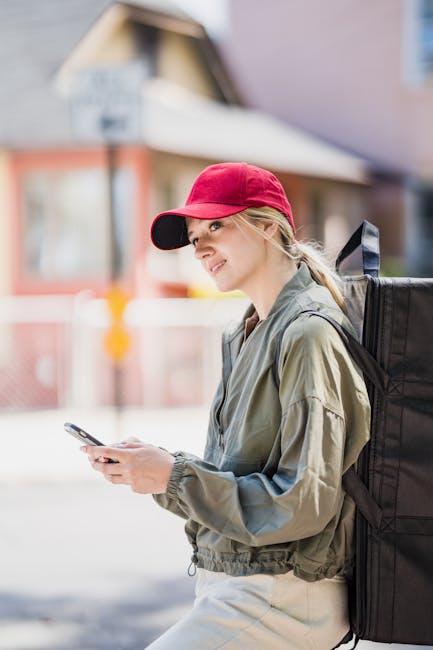In the intricate dance of global exploration, the thrill of discovering new horizons often comes hand in hand with the intricate choreography of navigating customs regulations. As travelers, we find ourselves at the crossroads of cultures, where the excitement of the unknown meets the rigorous demands of international law. “” delves into this delicate balance, offering a compass for those eager to journey across borders with confidence and ease. This guide explores the art of understanding and respecting the diverse tapestry of customs regulations, empowering adventurers to transform potential obstacles into opportunities for seamless travel experiences. Whether you’re a seasoned globetrotter or a curious newcomer, join us as we unravel the secrets to mastering the complexities of customs abroad, ensuring your adventures remain as smooth as they are unforgettable.
Understanding Diverse Customs Protocols
When traveling abroad, it’s crucial to recognize that customs protocols can vary significantly from one country to another, often reflecting cultural nuances and regulatory requirements. Understanding these diverse customs processes not only ensures a smoother journey but also enriches your travel experience. Here are some key aspects to consider:
- Documentation: Each country has specific documentation requirements, ranging from visas and entry forms to health declarations. Always double-check the latest requirements for your destination.
- Prohibited Items: What might be permissible in one country could be strictly prohibited in another. Familiarize yourself with the list of banned goods to avoid unnecessary complications.
- Duty-Free Allowances: These limits can differ widely, so it’s essential to know how much you can bring back without incurring extra costs. Research the regulations on alcohol, tobacco, and other duty-free items.
Cultural Sensitivity: Customs procedures are often a reflection of a country’s cultural values. Being aware of these can help you navigate with respect and understanding, leaving a positive impression and avoiding misunderstandings.
Packing Smart: Essential Documentation and Declarations
When embarking on international adventures, ensuring you have the right documents can make or break your journey. Before you set off, double-check that you have all the essential travel documents neatly organized. A well-prepared traveler should carry:
- Passport and Visa: Make sure your passport is valid for at least six months beyond your travel dates and verify if a visa is required for your destination.
- Travel Insurance: Having comprehensive coverage is crucial. Keep a copy of your insurance policy handy, detailing your coverage and emergency contacts.
- Vaccination Certificates: Some countries require proof of specific vaccinations. Ensure you have the necessary certificates to avoid being denied entry.
- Copies of Important Documents: Photocopy or scan your passport, visa, insurance, and any other critical paperwork. Store them separately from the originals.
Customs declarations can often be daunting, but understanding the process can ease your passage through checkpoints. Familiarize yourself with the customs regulations of your destination. This includes declaring items like:
- Currency and Valuables: Declare large amounts of cash or valuable items to avoid fines or confiscation.
- Restricted Goods: Be aware of items that are restricted or prohibited, such as certain foods, plants, or animal products.
- Electronics: Some countries require you to declare electronics or high-value goods upon entry.
Approaching customs with honesty and preparedness not only ensures a smoother entry but also keeps you on the right side of the law, allowing you to focus on the adventures that await.

Cultural Etiquette: Building Respectful Connections
When traveling abroad, understanding and respecting local customs is key to forming genuine connections. Cultural norms can vary widely, and what might be acceptable in one country could be frowned upon in another. To ensure your interactions are respectful and meaningful, consider the following:
- Dress Appropriately: Research local attire expectations, particularly when visiting religious sites or attending formal events. Modesty is valued in many cultures, so when in doubt, opt for conservative clothing.
- Mind Your Manners: Simple gestures like greeting people in their native language or learning a few key phrases can go a long way. Pay attention to local etiquette regarding gestures, as what might be friendly at home could be offensive elsewhere.
- Respect Personal Space: Personal space varies across cultures. In some countries, close proximity is normal, while in others, maintaining distance is a sign of respect. Observe and adapt to these nuances to avoid discomfort.
By embracing these practices, you not only show respect but also enrich your travel experience. Building connections based on mutual understanding and respect can lead to unforgettable encounters and lifelong friendships.

Handling Unexpected Challenges with Confidence
Traveling abroad can often feel like stepping into a new world, complete with its own rules and expectations, especially when it comes to customs regulations. The key to managing these unexpected hurdles lies in being prepared and adaptable. Here are some tips to help you face these challenges with confidence:
- Research Ahead: Familiarize yourself with the specific customs regulations of your destination country. This includes understanding what items are prohibited or restricted, and any declaration requirements.
- Stay Organized: Keep all your travel documents, receipts, and any necessary permits in an easily accessible place. Having these documents at your fingertips can help smooth the process if you’re stopped for questioning.
- Maintain a Calm Demeanor: Approach customs officials with respect and patience. A calm and composed attitude can go a long way in facilitating a smoother experience.
- Be Honest: Always declare items truthfully. Attempting to hide or misrepresent information can lead to serious complications, including fines or legal action.
- Seek Assistance: If you find yourself in a difficult situation, don’t hesitate to ask for help. Many airports have customer service desks or information points where you can seek guidance.
By equipping yourself with knowledge and a positive attitude, you can transform the unpredictability of customs checks from a source of anxiety into an opportunity to learn and grow. Embrace the journey, and remember that each experience adds a valuable chapter to your travel story.




